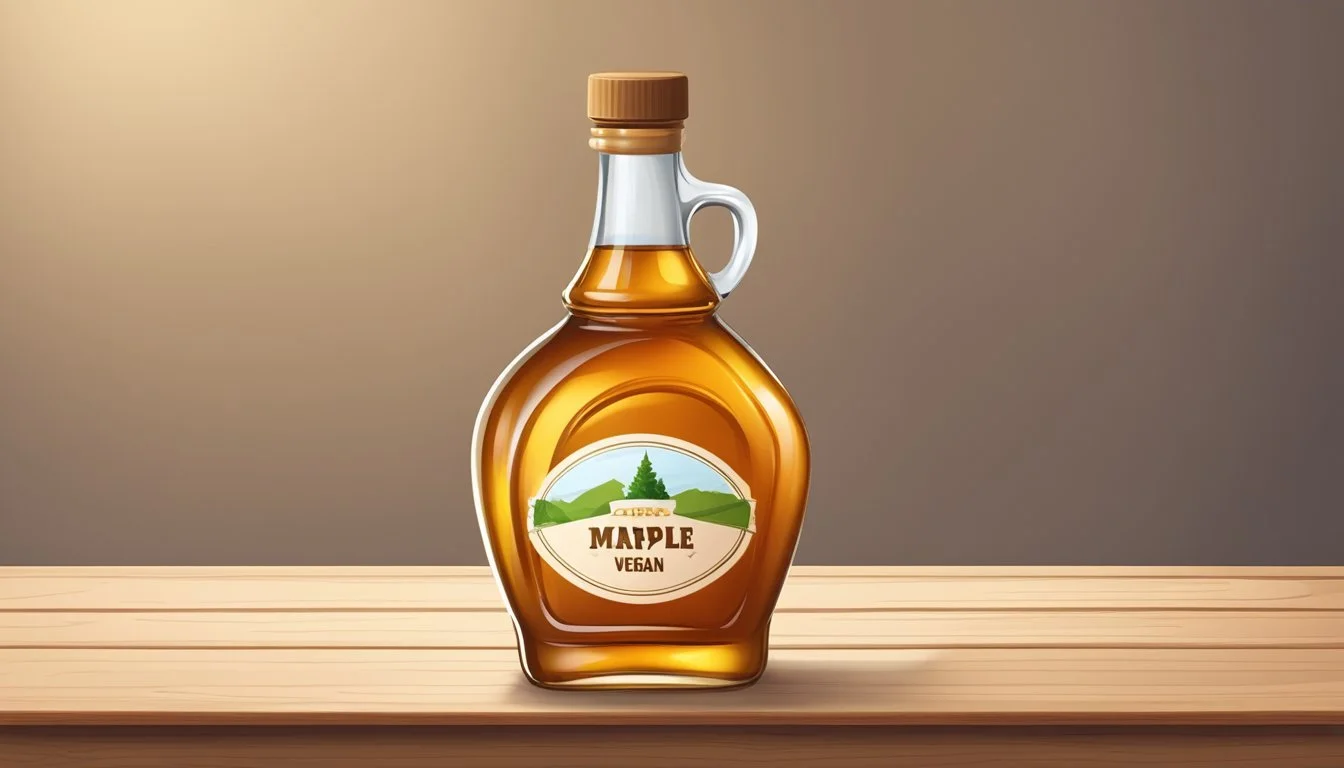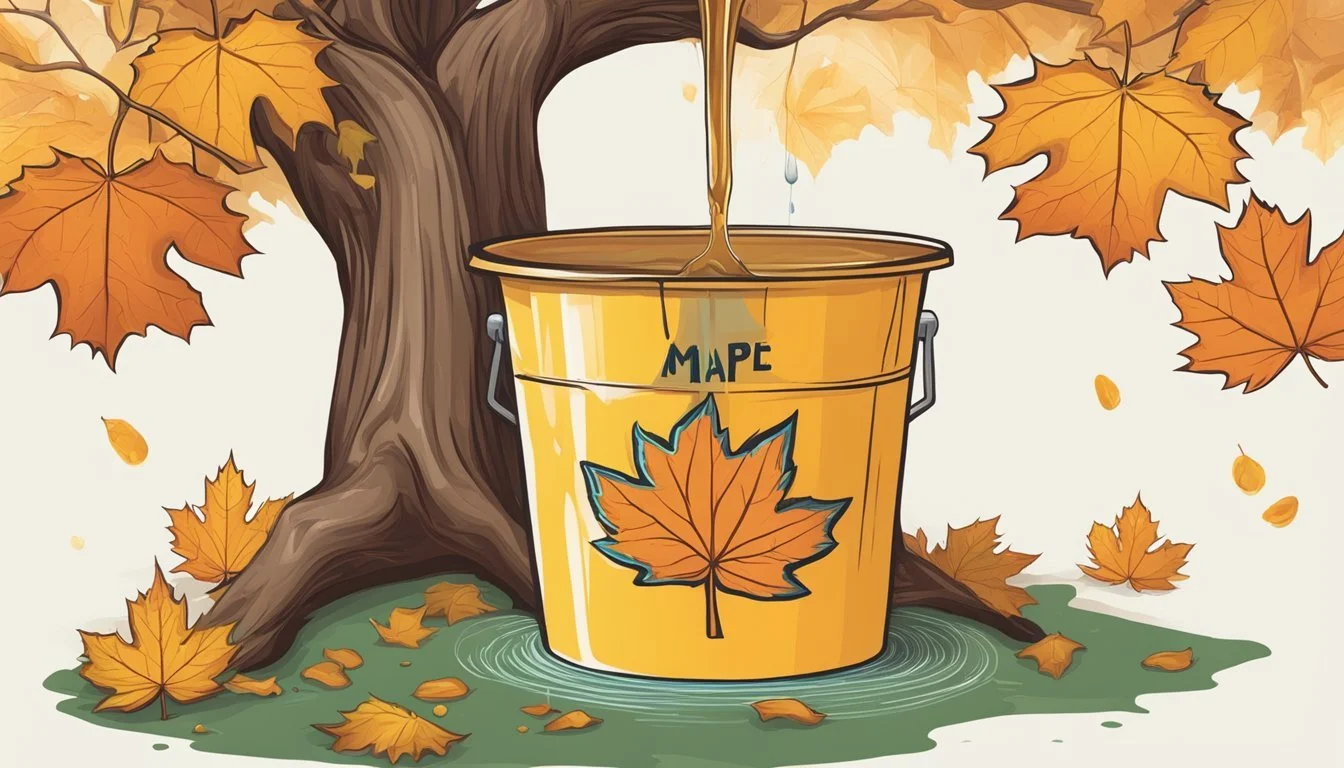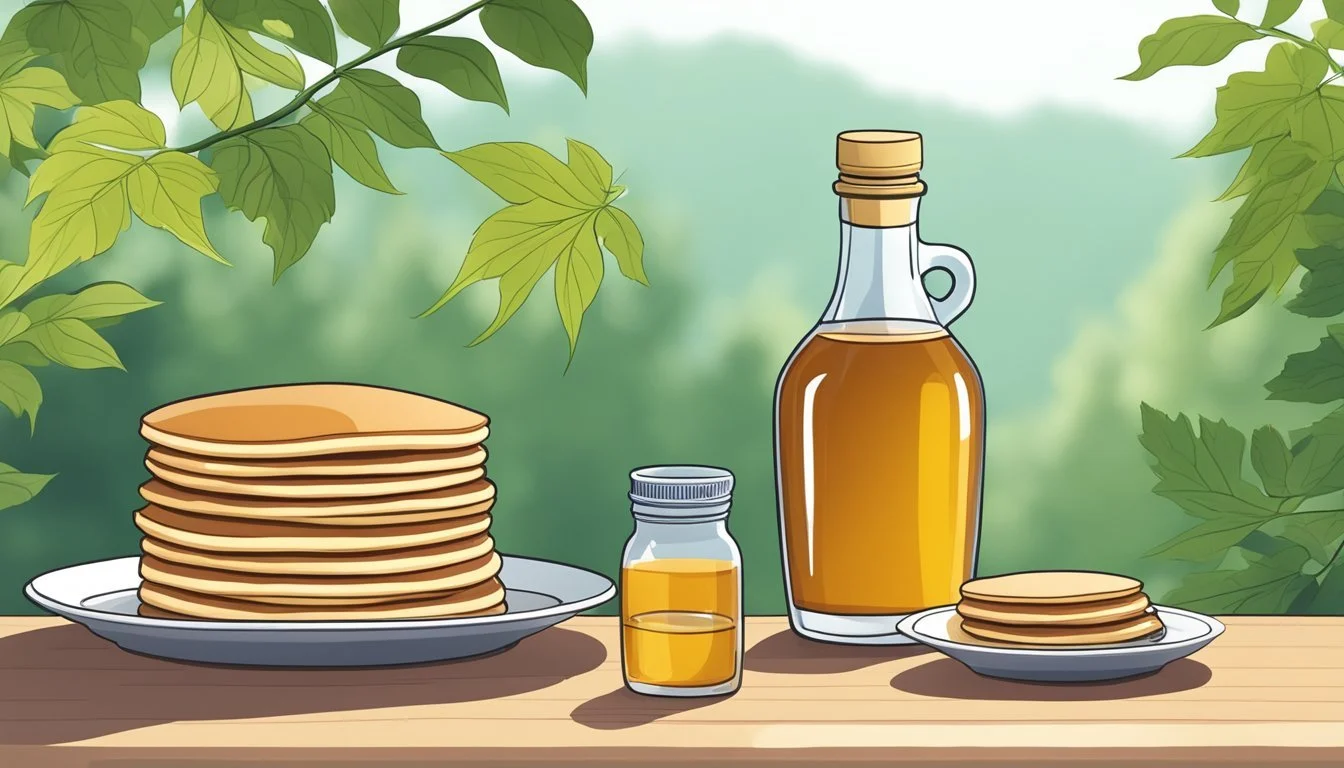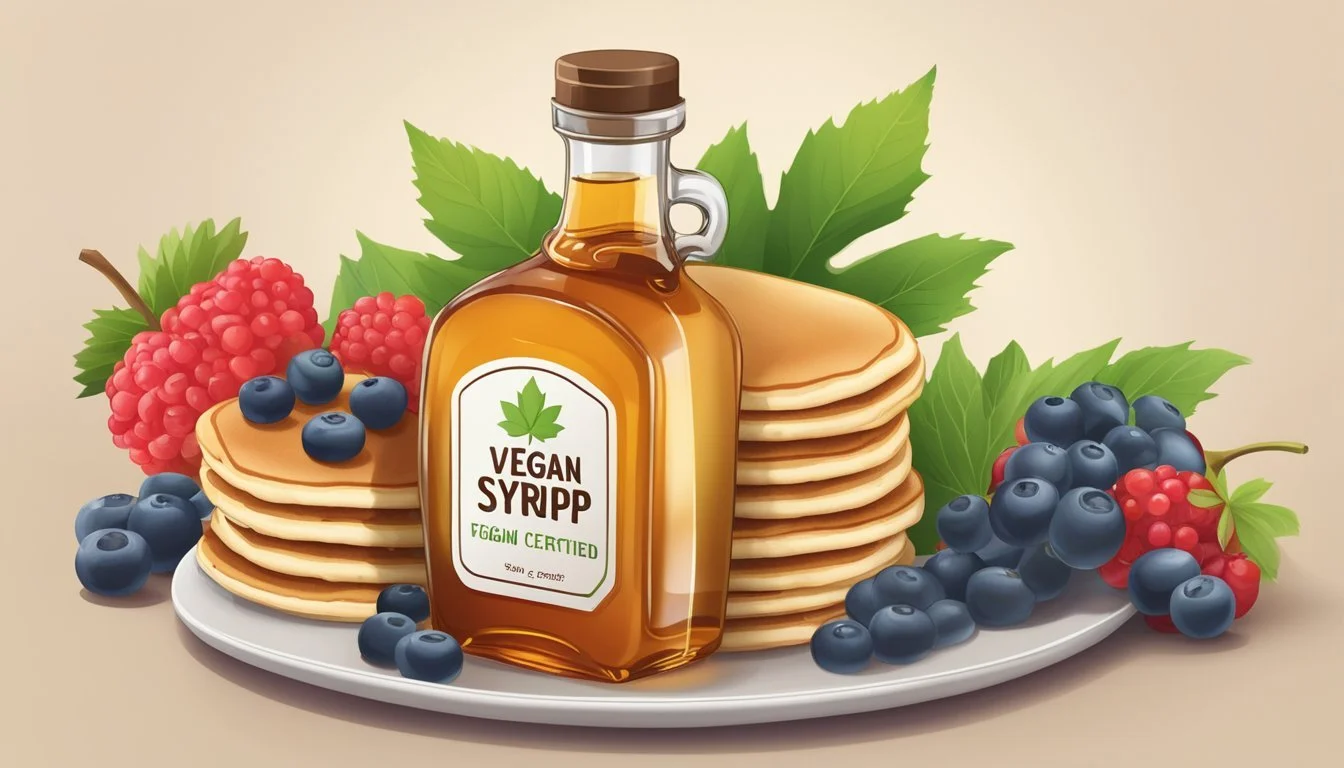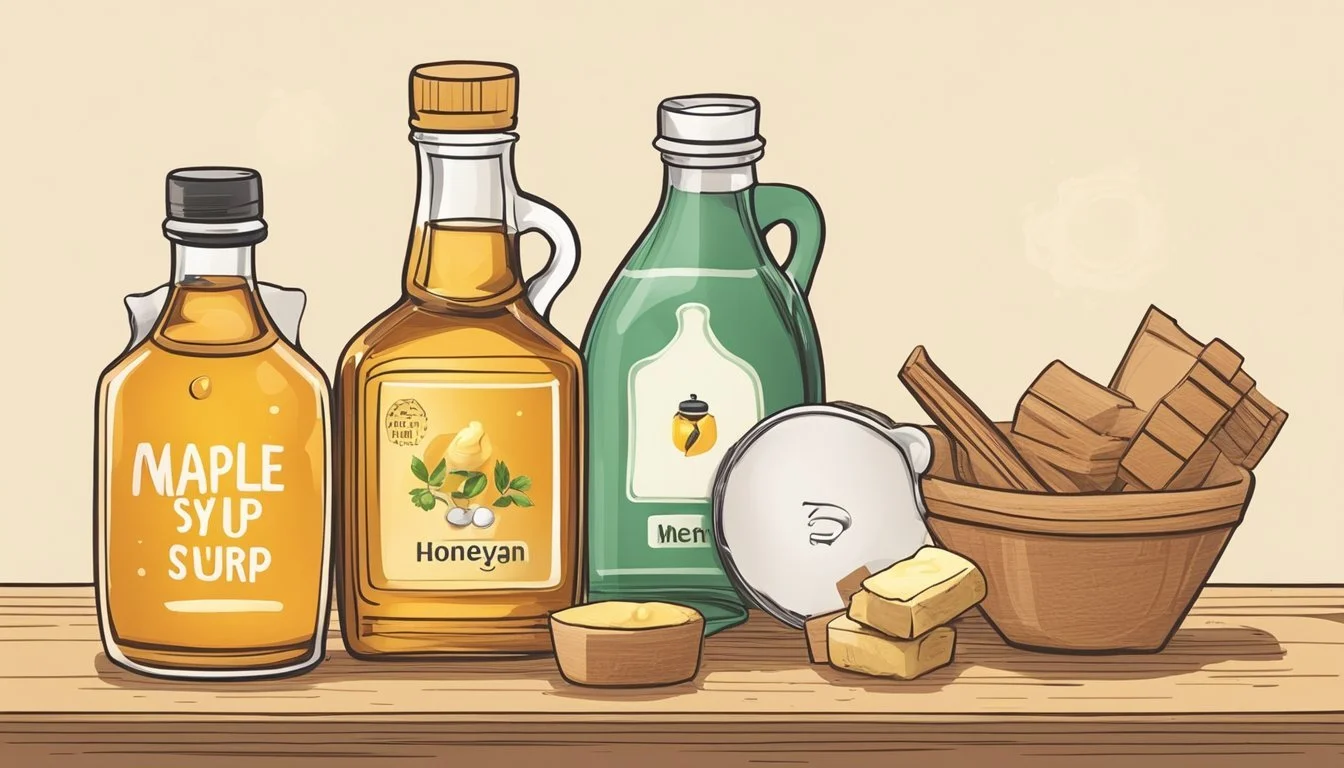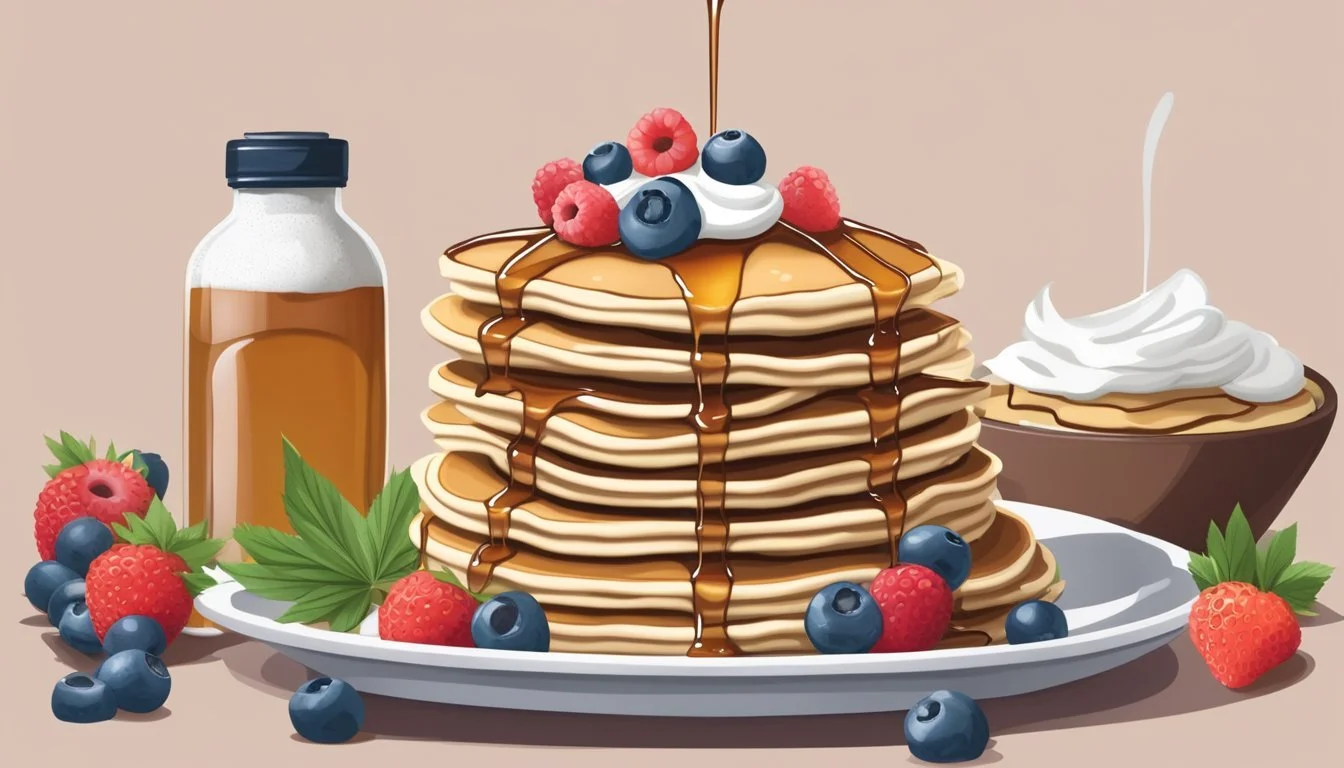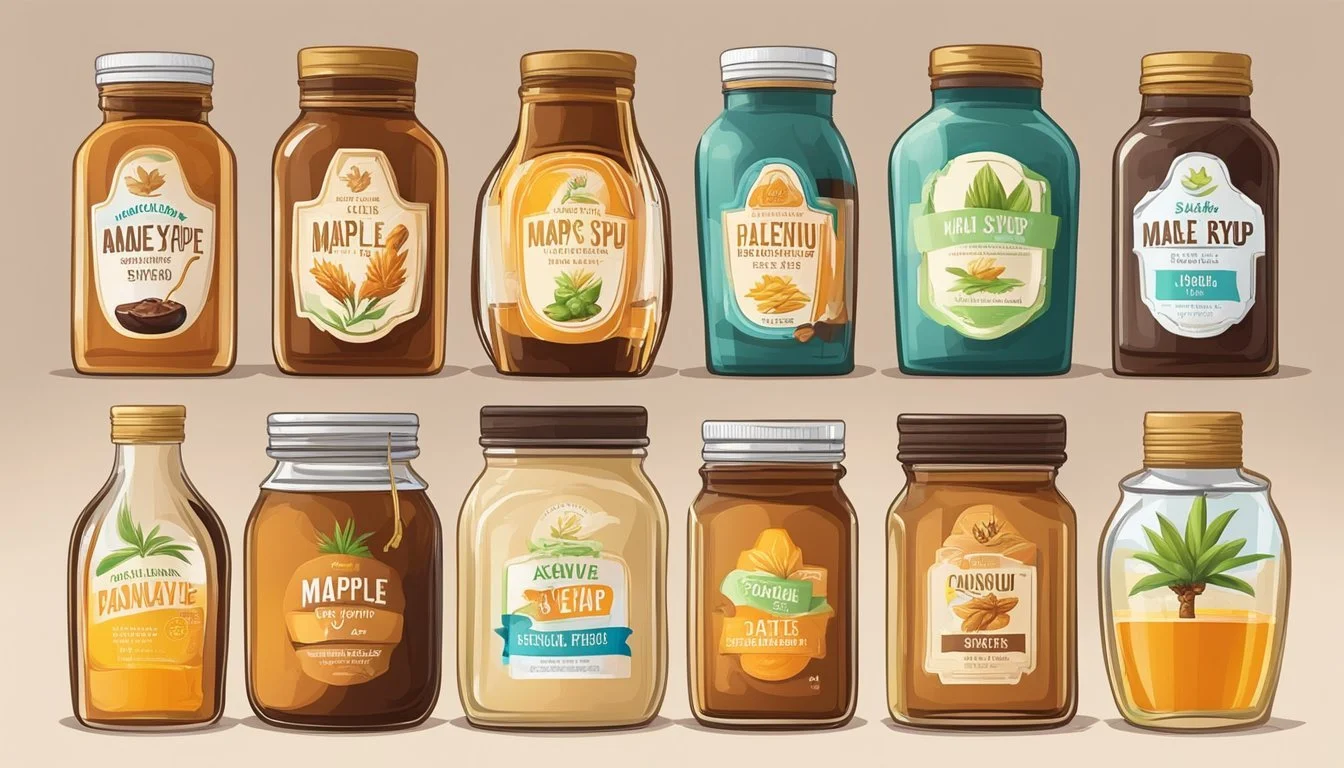Is Maple Syrup Vegan?
Unveiling the Sweet Truth
Maple syrup is a natural sweetener that comes from the sap of maple trees. This sap is collected, boiled down, and then processed into the syrup that is commonly used in cooking and baking, or as a topping for pancakes and waffles. Since maple syrup is derived directly from a plant source without the use of animal products or by-products, it aligns with vegan principles and is generally considered vegan-friendly.
However, some points of contention arise when considering certain production practices. For example, some maple syrup brands may use animal-based products like butter or cream as flavoring additives, which would not be suitable for a vegan diet. It’s also worth noting that strict vegans who follow a raw diet may not consider maple syrup to be appropriate, as the process of boiling the sap to create syrup disqualifies it from being raw. When purchasing maple syrup, vegans are advised to look for labels that specify "100% pure" to ensure that the syrup contains no non-vegan additives.
What Is Maple Syrup?
Maple syrup is a natural sweetener produced from the sap of maple trees, primarily known for its association with pancakes and waffles. It boasts a lower glycemic index compared to white sugar, making it a popular choice for those seeking alternative sweetening options.
Defining Maple Syrup
Maple syrup is a thick, sugary liquid that is made by concentrating the sap of various species of maple trees. The sap itself is a clear fluid that provides nutrients to the tree. Throughout various regions, pure maple syrup is distinguished by its unique flavor and color, both of which can range from light to dark.
Extraction and Processing
The process of making maple syrup involves tapping the maple trees by drilling holes into their trunks to collect the sap. Once collected, the sap is boiled down; water is evaporated, leaving behind the concentrated syrup. This method of processing ensures that the sweetness is intensified and the syrup achieves its characteristic consistency.
Maple Syrup Varieties
Different types of maple trees, such as the sugar maple, black maple, and red maple, contribute to various syrup varieties. The color and flavor of maple syrup can vary, influenced by factors such as tree species, region, and the time of harvest. Pure maple syrup is categorized into grades which reflect its color and sweetness; darker syrups are typically produced later in the harvesting season and have a more robust flavor.
Understanding Veganism
Veganism is more than just a diet; it's a compassionate lifestyle choice. This section delves into the dietary aspect of veganism as well as the broader lifestyle considerations tied to this ethical and health-conscious way of living.
The Vegan Diet
Veganism encompasses a plant-based diet that excludes all animal products. This means vegans do not consume meat, dairy, eggs, or any other product derived from animals. They seek alternatives for nutrients found in animal products, emphasizing a balance of grains, legumes, nuts, seeds, fruits, and vegetables. Below is a breakdown of a typical vegan diet:
Grains: Rice, wheat, oats, barley, and more.
Legumes: Beans, lentils, chickpeas, and peas.
Nuts and Seeds: Almonds, cashews, flaxseeds, hemp seeds, and chia seeds.
Fruits and Vegetables: A vast variety from leafy greens to berries to root vegetables.
Plant-based milk and dairy alternatives: Soy, almond, oat, and rice milks; plant-based cheeses and yogurts.
These plant-based items are staples in a vegan's diet and serve as their primary sources of essential nutrients.
Vegan Lifestyle and Choices
A vegan lifestyle transcends diet to include abstaining from products such as leather, wool, and silk, all of which originate from animals. Vegans also avoid products tested on animals and generally advocate for animal rights. They frequently choose products that support sustainable practices. A vegan's choices are often informed by a desire to reduce animal suffering and environmental impact. The lifestyle choices might include:
Clothing and accessories: Opting for materials like cotton, linen, synthetic fibers, or recycled materials instead of animal hides and fur.
Beauty products: Choosing items labeled "cruelty-free" and without ingredients of animal origin.
Household items: Selecting furnishings and cleaning supplies that do not contain animal products and are not tested on animals.
These decisions are integral to what many consider a vegan lifestyle, solidifying veganism as a holistic approach to living that is kind, ethical, and mindful of the planet and its inhabitants.
Is Maple Syrup Considered Vegan?
Maple syrup is a sweetener derived from the sap of various species of maple trees. It has gained popularity for its distinctive taste and natural origins. The vegan community widely accepts maple syrup as a vegan-friendly product.
Maple Syrup Production
Plant-Based Source: The substance comes directly from maple trees, tapping into the sap without harming the tree itself.
Processing: The sap is heated to evaporate excess water, leading to the syrup's concentrated form.
Vegan Considerations
No Animal Products: Traditional maple syrup does not contain animal derivatives.
Certified Vegan Labels: Some brands may carry a "certified vegan" label, ensuring no cross-contamination with non-vegan substances.
Organic Maple Syrup
Organic Standards: Organic maple syrup follows stringent guidelines which also support vegan principles, barring the use of animal fat or other animal products in farming practices.
Vegan Concerns
Additives: A potential concern for vegans is non-vegan additives in some commercial syrups, which are not purely maple but mixed with other ingredients.
In essence, pure maple syrup is a plant-based ingredient suitable for vegans. It is essentially free from animal products, vegan-friendly, and can satisfy the sweet cravings of those on a plant-based diet. However, vegans should be mindful of the product labels to ensure the absence of unwelcome additives.
Production and Ethical Considerations
In evaluating whether maple syrup is vegan, analysis of its production and the ethical implications of such processes is essential. The industry practices, impact on the trees, and usage of animal by-products all influence maple syrup's vegan status.
Industrial Practices
Maple syrup is produced primarily in Canada, with Quebec being the largest producer. The traditional method involves tapping into the xylem sap of maple trees during the winter when sap flow is most active. Reverse osmosis and filtration are modern techniques employed to concentrate the sap before heating, reducing energy consumption. Many producers adhere to certified organic standards to ensure minimal chemical usage.
Extraction Impact on Trees
Trees are tapped by drilling holes into their trunks, which allows the xylem sap to flow out. The process is designed to be sustainable, with guidelines on the number of taps per tree to prevent harm. Research indicates that tapping does not significantly affect tree health when done responsibly.
Animal By-Products in Production
The maple syrup production process sometimes uses defoaming agents to prevent the sap from boiling over in the sugarhouse. Historically, lard was a common defoaming agent, but many producers now use vegetable oil as a vegan alternative. Consumers can look for syrup labeled as "vegan" or inquire with manufacturers to ensure no animal by-products are used.
Vegan Labeling and Certification
Vegan labeling and certification ensure transparency for consumers seeking to adhere to a vegan diet. These markers distinguish products that meet the strict criteria of containing no animal products or by-products.
Deciphering Labels and Certifications
When examining maple syrup labels, consumers should look for indications such as 100% pure maple syrup to ensure the product is of natural origin and free from animal-derived ingredients. Labels may also specify if the maple syrup is certified organic, highlighting the avoidance of synthetic pesticides in the farming process and adherence to organic standards.
Certifications to look out for include the certified vegan mark, which signals a product has passed evaluation to confirm it contains no animal products or byproducts and that it has not been tested on animals. Here is a breakdown of label elements and certifications:
Labels: Should clearly state if the product is 100% pure maple syrup and list all ingredients.
Certified Organic: This indicates the syrup has been produced following organic farming regulations, which is often preferred by vegans.
Certified Vegan: Products bearing this certification have been verified as vegan by a certifying body, assuring consumers of their compliance with vegan standards.
When ingredients are listed, it is imperative for consumers to review these to ensure that all components are plant-based. Products in the European Union are legally required to have clear labels stating their vegan status, and often carry a vegan logo for easier identification.
Common Non-Vegan Ingredients in Syrups
When examining syrups, it's crucial to discern whether they contain non-vegan ingredients. Many commercial syrups have additives for taste, texture, or preservation that are not suitable for a vegan diet.
Identifying Non-Vegan Additives
The following are common non-vegan ingredients found in syrups:
Honey: Frequently used as a natural sweetener, honey is derived from bees and thus not vegan.
Dairy: Some syrups introduce dairy products, such as milk or milk-derived components like foam boosters, to enhance creaminess.
Bone Char: Known for its use in the decolorization of sugar, bone char is an animal-derived product often used in brown sugar refinement.
Butter Flavor: Artificial or natural butter flavoring, which may include real dairy, can be added for richness.
Flavorings: Some "natural flavorings" could be of animal origin; careful inspection of the label is necessary to avoid these.
Artificial Flavors: Though not always non-vegan, these can include dairy derivatives or other animal-derived substances.
To ensure a product complies with a vegan diet, one should examine the ingredient list for these additives and contact the manufacturer for clarification on ambiguous ingredients like "natural flavors." Vegan certification labels can also be a reliable guide to identifying vegan syrups.
Maple Syrup in a Vegan Diet
Maple syrup serves as a versatile ingredient in a vegan diet, often utilized for both its sweetness and nutritional attributes. It is a plant-based syrup obtained from the sap of maple trees making it a preferred sweetener for many vegans.
Cooking and Baking with Maple Syrup
In vegan cooking and baking, maple syrup is favored for its distinct flavor. Recipes for breakfast items such as pancakes and waffles frequently incorporate maple syrup not just as a topping but also mixed into batters. It also finds use in a variety of savory dishes, adding a subtle sweetness to marinades and dressings.
Maple Syrup as a Sugar Substitute
As a plant-derived liquid sweetener, maple syrup can replace granulated sugar in a vegan diet. It contains natural flavors and is often a better alternative to pancake syrup, which may include artificial flavors and preservatives. Maple syrup's liquid form makes it easy to integrate into drinks and vegan dessert recipes.
Nutritional Value
Maple syrup offers more than just sweetness; it contains valuable nutrients such as manganese, zinc, riboflavin (vitamin B2), and potassium. One tablespoon typically has about 50 calories. Although it is high in sugars, it provides a more nutritious option compared to refined sugars, contributing trace minerals to one's diet.
Vegan-Friendly Maple Syrup Brands
In identifying vegan maple syrup brands, consumers should focus on products that do not use non-vegan filtering agents or additives. The following brands are recognized for their commitment to vegan-friendly production processes.
Recommended Brands
Maple Grove Farms: They offer a variety of pure maple syrups, making them a trusted choice for vegans.
Kirkland Signature: Known for their all-natural organic maple syrup, Kirkland's products are vegan-friendly and widely available.
Wholesome Sweeteners: This company produces organic, fair-trade certified maple syrup, guaranteeing no animal products are used.
Butternut Mountain Farm: They provide pure maple syrup that is naturally vegan, sourced responsibly from trees.
Log Cabin: Although not all are vegan due to the flavorings, their all-natural syrups are suitable for vegans.
Stonewall Kitchen: They offer gourmet maple syrup that’s vegan-friendly, free from artificial additives.
Identifying Trustworthy Products
Consumers should look for certifications and labels such as organic, non-GMO, and fair-trade; these often correlate with vegan products since they are less likely to contain animal-derived substances. Additionally, engagement with the companies through their customer service can offer assurances about their syrup's vegan status.
The presence of the Vegan label is vital, however, one must be cautious as it is not always present, and its absence does not necessarily imply the product isn't vegan.
Alternatives to Maple Syrup
When seeking substitutes for maple syrup, one may find various plant-based syrups and natural sweeteners that can be used for a range of culinary applications, notably as pancake toppings or in baking.
Plant-Based Syrup Alternatives
For those seeking vegan alternatives to maple syrup, several plant-derived options exist:
Agave Nectar: A sweet syrup from the agave plant, it has a lower glycemic index and can be used in a similar fashion to maple syrup.
Coconut Nectar: Sourced from the sap of the coconut palm, this syrup offers a naturally sweet flavor with a touch of caramel.
High Fructose Corn Syrup (HFCS): Often used in commercial food products, HFCS is a sweetening agent derived from corn syrup. However, it lacks the natural antioxidants found in other syrups.
Furthermore, various faux maple syrups or maple-flavored syrups, which do not contain actual maple, can be found commonly in stores, often labeled as "pancake syrup."
Comparing Natural Sweeteners
While considering sweetness derived from nature, here's a glance at how they compare:
Antioxidant Content: Natural sweeteners like maple syrup and molasses contain antioxidants, unlike synthetic or highly processed sweeteners.
Impact on Blood Sugar: Sweeteners such as agave nectar have a lower impact on blood sugar levels compared to others like high fructose corn syrup.
Flavor: The syrups derived from sap (e.g., maple syrup and coconut nectar) have unique flavors; maple syrup imparts a distinct rich taste, while coconut nectar provides a mild caramelized flavor, both suitable for pancakes and other sweet dishes.
Usage in Cooking: Most plant-based syrups can directly replace maple syrup in recipes, whether it's to sweeten baked goods or glaze vegetables.
In selecting an alternative to maple syrup, it's important to consider the intended use and desired nutritional profile.

